Is the bureaucracy politically neutral during elections

Last month, speaking in Nawabshah, former president Asif Ali Zardari pledged that, if the Pakistan People's Party (PPP) won the upcoming elections, every household in Pakistan that doesn't already have a member in government services, would get the chance to have at least one member in a government job.
Zardari may have been blunter than other politicians, but it is no secret that politicians across Pakistan woo voters with government posts.
These are jobs that are not performance based — they come with security of tenure, access to power, pensions and other perks and privileges. They are, therefore, the top demand that people make of their representatives.
It is no surprise then that it is considered necessary that the caretaker government reshuffle the bureaucracy prior to an election.
The widely held perception is that the bureaucracy is politicised — bureaucrats are loyal to particular parties and politicians, and that they will act to favour them at election time.
There is no doubt that Pakistan's bureaucracy is politicised from the street-level bureaucrats (teachers, patwaris) all the way up to the elite, Pakistan Administrative Service (PAS) bureaucrats.
At the street-level and mid-tier level, it is common for bureaucrats to leave their offices in the evening and join a gathering at a politician's dera.
Amongst the elite bureaucracy, both politicians and bureaucrats have their favourites. Just as in the 1990s, lists are still made by political party leaders to identify bureaucrats who they trust and want to work with when they are in government.
And many bureaucrats make obvious moves (going out of the country, taking leave to work in other organisations or to study, moving from one province to another or to the federation) to avoid working with those they do not get along with.
How can bureaucrats favour a politician or a party at election time?
There are two ways: the first is in the run-up to election day, and the second is on election day itself.
In the run-up to the election, senior and mid-tier bureaucrats can play a crucial role in favouring some politicians over others.
In the districts, the police can be deployed to harass and intimidate opposition candidates, and bureaucrats can use regulations to create roadblocks (literally and figuratively) for less favoured parties and politicians, for instance by refusing or delaying permission for rallies.
Islamabad's CDA's recent decision to ban rallies, gatherings of more than five people, and pamphleteering in the month leading up to the election seems to be an example of such a strategy.
Such a move disadvantages small parties like the Awami Workers Party, who rely on public gatherings to win votes, and lack the connections and resources to cut through bureaucratic red tape (as their candidate for NA-53, Ammar Rashid, pointed out).
Senior and mid-tier bureaucrats in departments and districts (secretaries, commissioners, deputy commissioners, assistant commissioners, and district police officers) are also the ones responsible for the appointment of street-level bureaucrats (teachers, patwaris, station house officers, etc).
This can be done according to the wishes of a prominent politician who wants his voters and supporters to be accommodated with a government job (the way Zardari has claimed) or in posts of their choice.
Though the practice has become much less blatant since National Accountability Bureau investigations into illegal recruitments by Riaz Fatyana while he was Punjab Education minister, Anwar Saifullah Khan when he was minister for Petroleum, and more recently into Faisal Saleh Hayat while he was managing director of the Pakistan Housing Authority, it is still not uncommon for ministers to hand bureaucrats a list of names with the demand that they be accommodated with a government job.
The jobs can range from Class IV appointments such as guards and peons, to street-level posts such as patwaris, teachers, and health workers.
Bureaucratic appointments can also be made with the express intent of influencing voters on election day by ensuring that bureaucrats, and particularly police officers, who will be appointed as polling agents and security staff in a specific area, are friendly to a particular party or politician.
It is impossible to keep track of and check these appointments — there are simply too many in each province — and the majority of them will technically be legal, and therefore difficult to challenge.
Meanwhile, incumbent governments can take measures to win the loyalty of bureaucrats as well, mainly through regularisation schemes.
These schemes involve regularising contract employees so that they can enjoy the same perks and privileges as permanent employees of the government. These schemes are approved by chief ministers as elections draw nearer and are a clear sign of bolstering the ruling party's popularity and winning bureaucrats' loyalty for the upcoming election.
Chief Minister Shehbaz Sharif regularised thousands of employees in April 2018, and Chief Minister Pervez Khattak did the same in February 2018 — and the timing of these decisions is not accidental.
How much good can a reshuffle of the bureaucracy by the caretaker government do?
While the caretaker government might be well-intentioned, seeking to transfer bureaucrats within and between provinces to ensure that the state machinery be as neutral as possible come election day, there are problems with these reshuffles.
The first problem is one of imperfect information on bureaucrats' political loyalties. The caretaker government may know of the political loyalties of major bureaucratic players, but it can not possibly make an educated decision for the thousands of bureaucrats it reshuffles at various tiers of the administrative hierarchy.
Therefore, moving a bureaucrat from A to B may not actually reduce their influence over the electoral process, such as it may be.
In effect, caretaker reshuffles and the reshuffles carried out by the departing government, and by the new government when it takes office following elections, mean that the state machinery is in a state of turmoil for six months, effectively slowing down any actual work of government departments.
Furthermore, the way reshuffles work is that the caretaker government, with the approval of the Election Commission of Pakistan, transfers the top tier of bureaucrats. These bureaucrats then transfer the mid-tier bureaucrats under their purview, who can then transfer street-level bureaucrats.
However, in the short time available to the district bureaucracy, it is unlikely that a major reshuffle of mid-tier and street-level bureaucrats will take place.
Effectively, the bureaucrats staffing posts in the run-up to the election and polling stations are likely to be those appointed by the outgoing government, allowing opposition parties to cry foul on election day.
Party over the state
The entire reshuffle process is, as has been pointed out elsewhere, expensive, time-consuming, and inefficient.
Even if we assume that a neutral bureaucrat has been found, they have very little time to become familiar with what may be an entirely new district or department.
This means that they must rely on bureaucrats already present in the department for information, potentially compromising the neutrality of the office despite the transferred officer's best intentions.
A similar problem arises when bureaucrats are moved between provinces. The Pakistan Muslim League-Nawaz and the PPP are deeply entrenched in Punjab and Sindh respectively, and it is difficult to staff the province with officers who have never dealt with these parties and the bureaucrats favoured by them in some manner.
This leads to the charge that the caretaker government is itself biased. But bringing in bureaucrats from other provinces might leave the officers with very little time to adjust to political realities that they are unused to, again making them completely reliant on bureaucrats working under them.
Finally, it is worth asking if bureaucrats' loyalties to parties and politicians take precedence over their loyalty to themselves, their careers and even their cadre.
Any number of lobbies, groupings, and factions exist within the bureaucracy — political loyalties are but a part of bureaucratic identities.
Opposition parties continue to flag these loyalties and demand reshuffles but this is no substitute for a professional bureaucracy that is loyal to the state first. Such a bureaucracy is only possible through civil service reform.
There is no lack of proposals for reform. What is required is the will to implement them, not just of the politicians, but of the bureaucrats themselves.
Copyright: Dawn/ Asia News Network

 For all latest news, follow The Daily Star's Google News channel.
For all latest news, follow The Daily Star's Google News channel. 

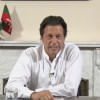
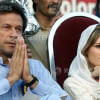
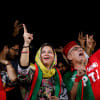
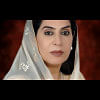
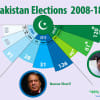


Comments